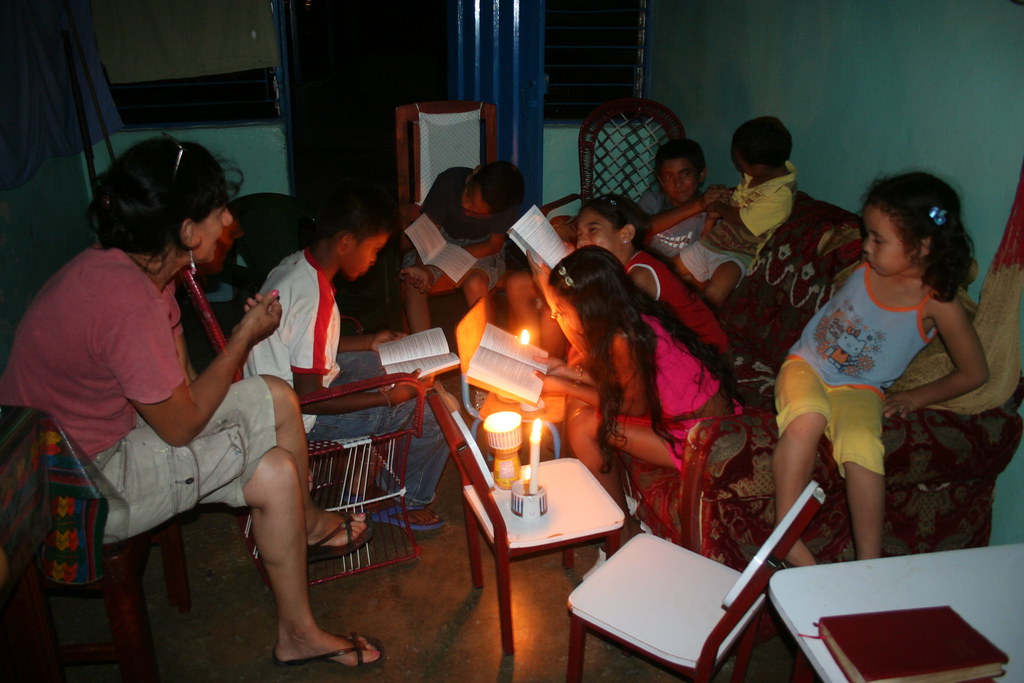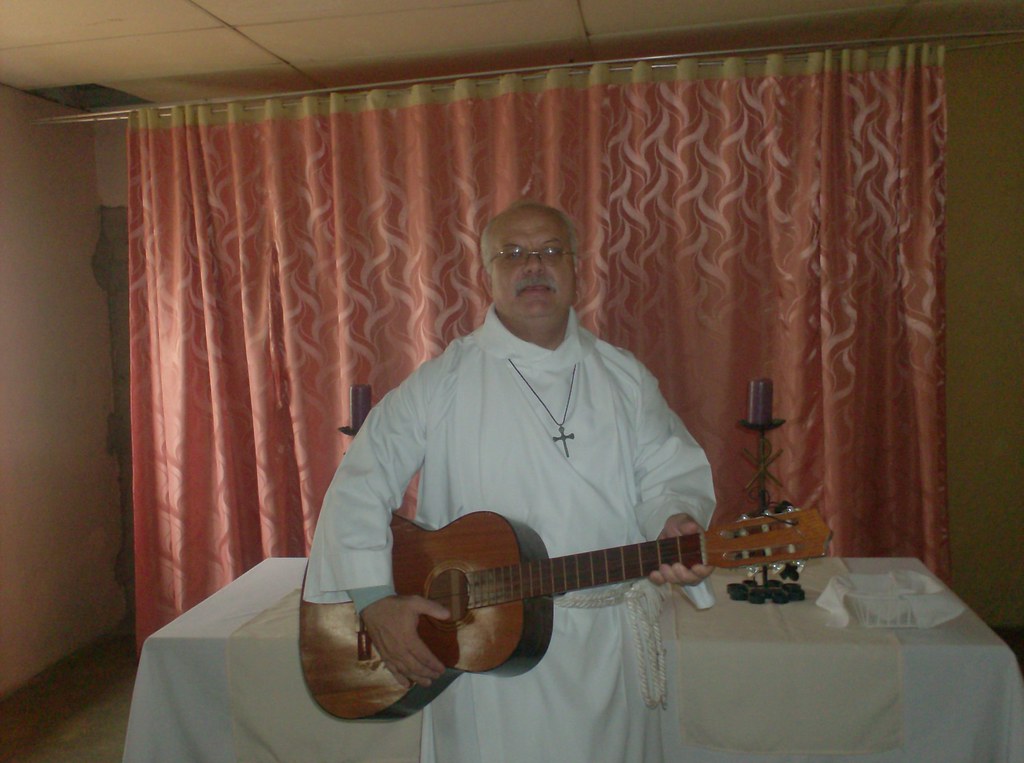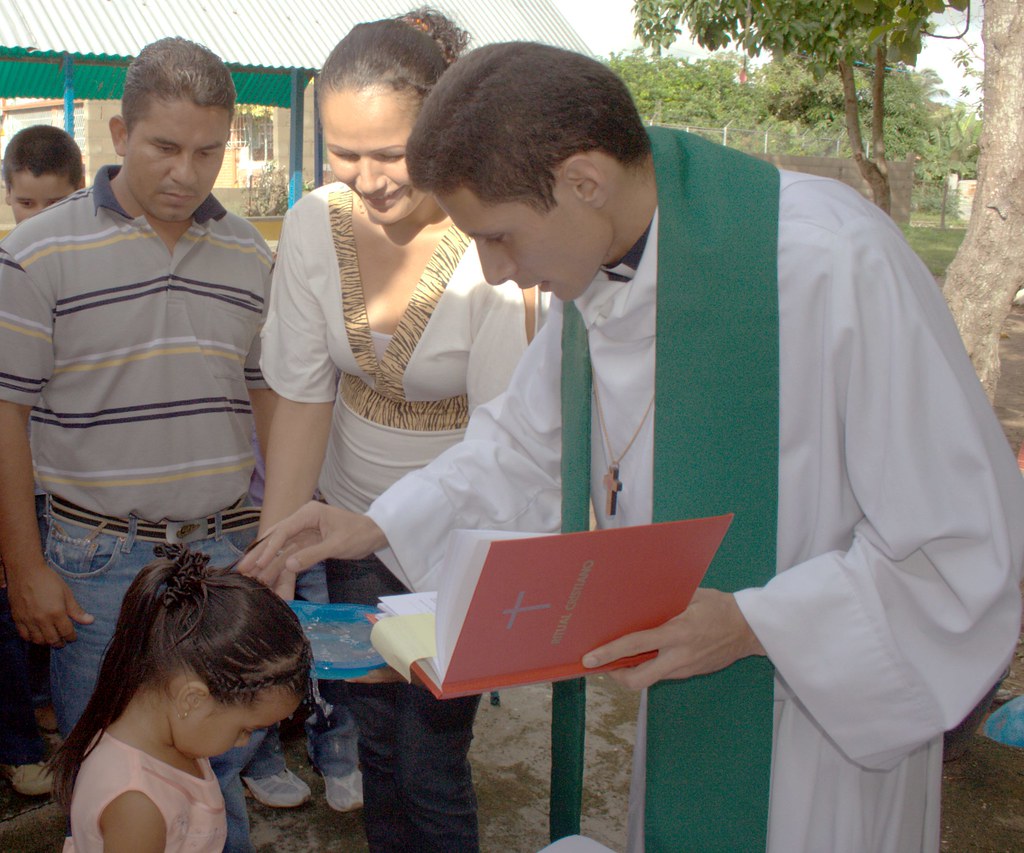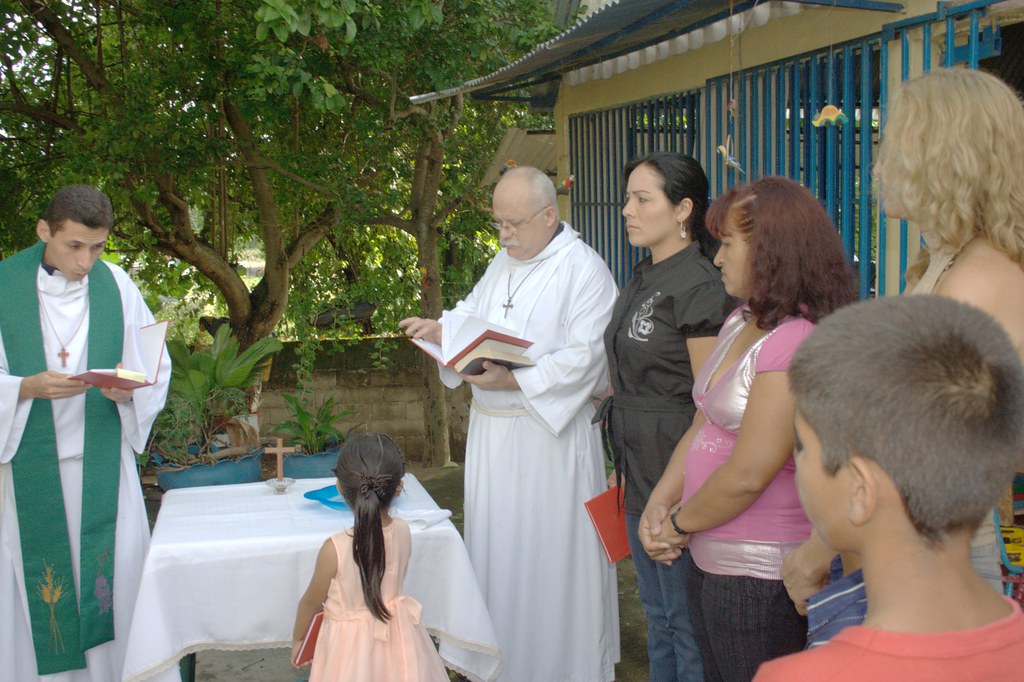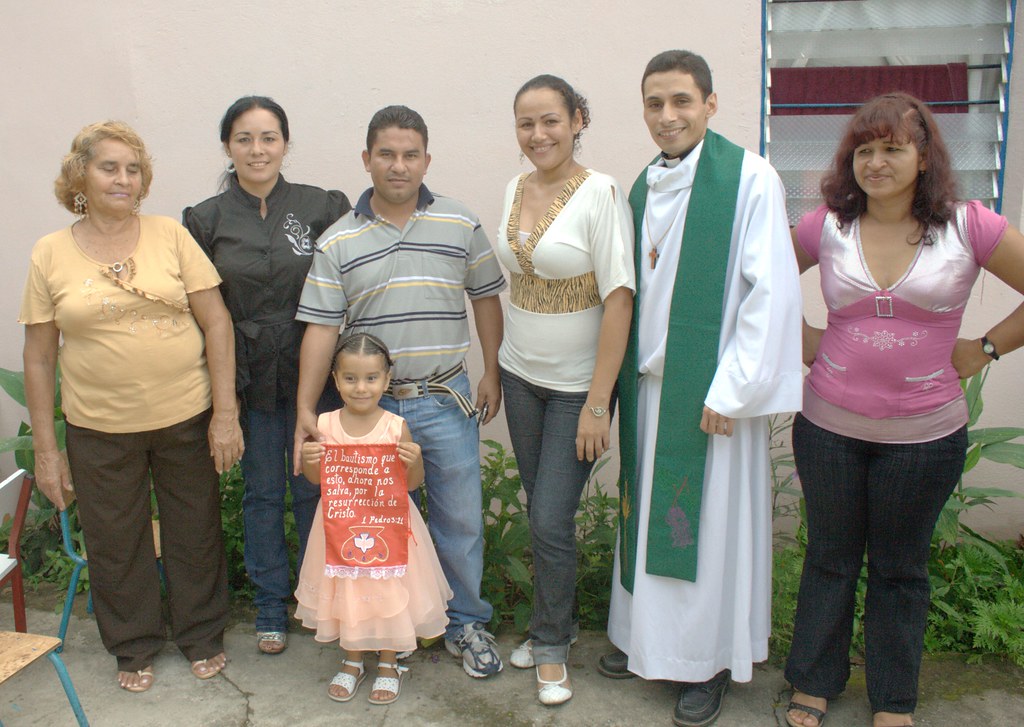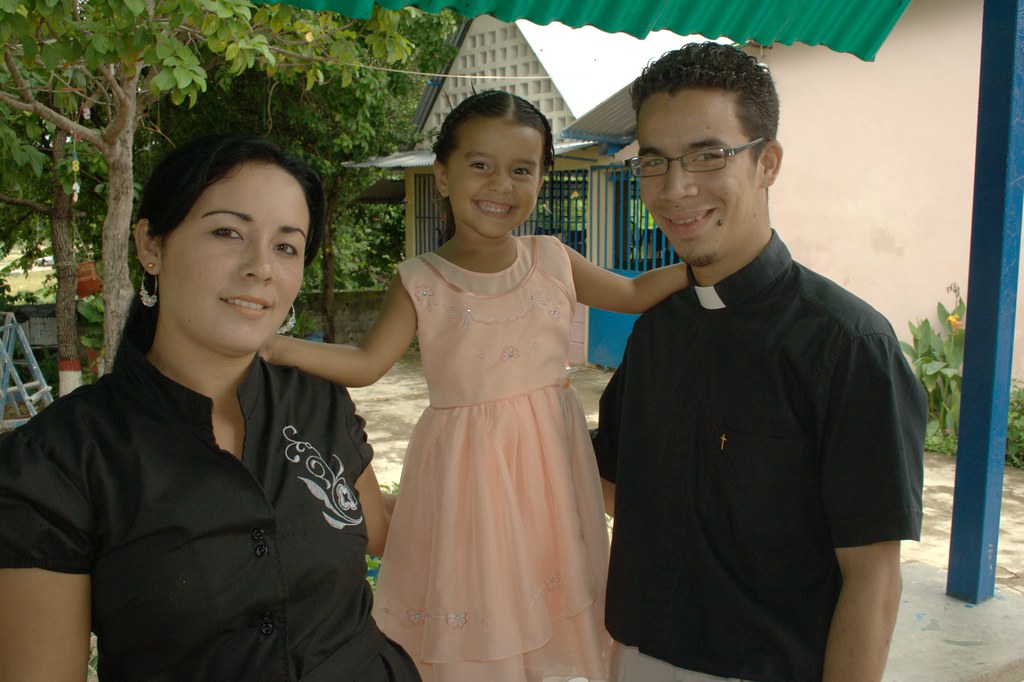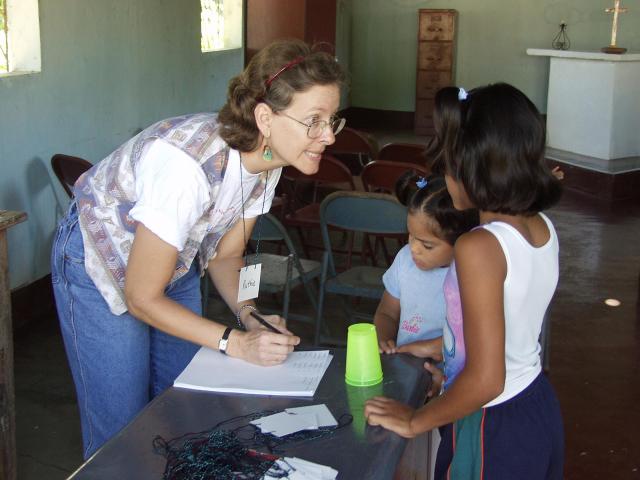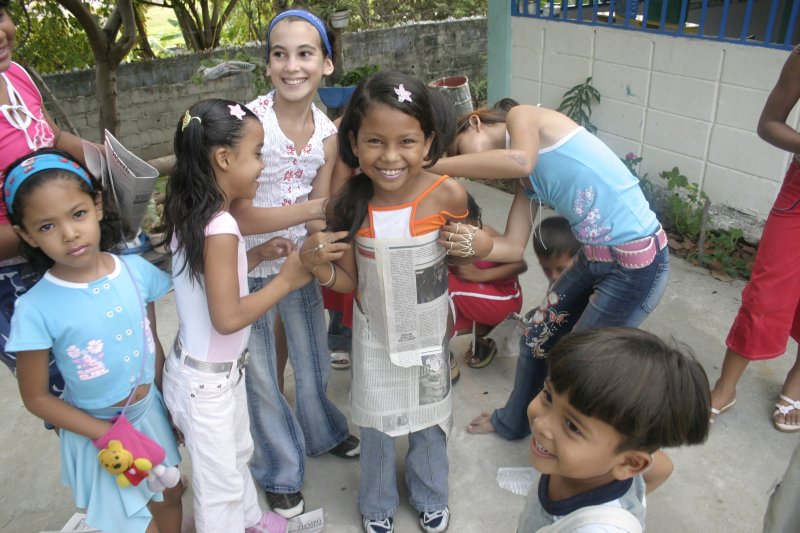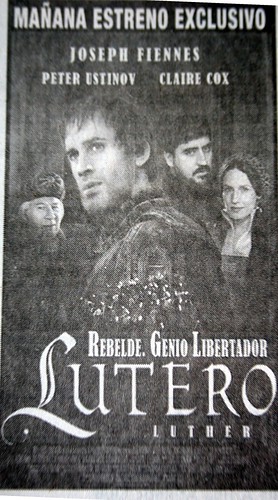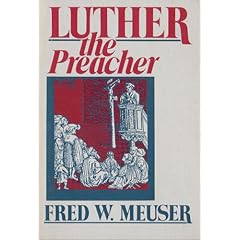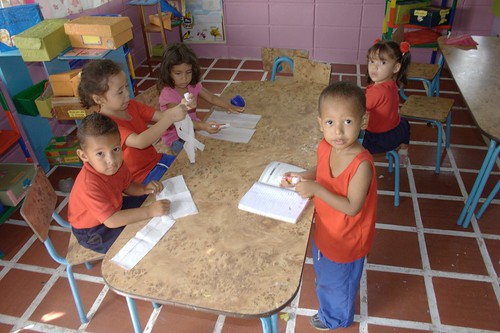
Holy, holy, holy! Lord God Almighty!
Early in the morning our song shall rise to Thee;
Holy, holy, holy, merciful and mighty!
God in Three Persons, blessèd Trinity!
Holy, holy, holy! all the saints adore Thee,
Casting down their golden crowns around the glassy sea;
Cherubim and seraphim falling down before Thee,
Which wert, and art, and evermore shalt be.
Holy, holy, holy! though the darkness hide Thee,
Though the eye of sinful man Thy glory may not see;
Only Thou art holy; there is none beside Thee,
Perfect in power, in love, and purity.

Holy, holy, holy! Lord God Almighty!
All Thy works shall praise Thy Name, in earth, and sky, and sea;
Holy, holy, holy, merciful and mighty!
God in Three Persons, blessèd Trinity!
This hymn, based on Revelation 4:8 and Isaiah 6:3, was written especially for Trinity Sunday by Reginald Heber sometime in the early 1800s (most of his hymns were published after his death). Heber also wrote the classic missionary anthem,
From Greenland's Icy Mountains.
Heber could have lived out a comfortable and cultured life as an Anglican country parson. He wrote both religious and secular poetry, and his literary talent was praised by William Thackeray and Alfred Lord Tennyson. However, in 1823, then 40 years old, Heber accepted a call to serve as a missionary to India.
After three years of ceaseless traveling and intense work, Heber died suddenly while visiting Trichinopoly, India on April 3, 1826. His death evidently was the result of a seizure brought on by working too hard in India's tropical climate. According to one account, he had baptized 42 people on the day he died. According to another, he had spent the day preaching against the evils of the caste system to a large, outdoor crowd. Heber's body was buried at St. John’s Church, Trichinopoly, Tamil Nadu, India, a very long way from his native Cheshire, England.
This Trinity Sunday, May 18, 2008, we sang the Spanish translation of “Holy, holy, holy” by Juan B. Cabrera:

¡Santo! ¡Santo! ¡Santo! Señor omnipotente,
Siempre el labio mio loores te dará.
¡Santo! ¡Santo! ¡Santo! te adoro reverente
Dios en tres personas, bendita Trinidad.
¡Santo! ¡Santo! ¡Santo! la inmensa muchedumbre
De ángeles que cumplen tu santa voluntad,
Ante ti se postra, bañada de tu lumbre,
Ante ti que has sido, que eres y serás.
¡Santo! ¡Santo! ¡Santo! por más que estés velado,
E imposible sea tu gloria contemplar;
Santo tú eres sólo, y nada hay a tu lado
En poder perfecto, pureza y caridad.

¡Santo! ¡Santo! ¡Santo! la gloria de tu nombre
Vemos en tus obras en cielo, tierra y mar;
¡Santo! ¡Santo! ¡Santo! te adorará todo hombre,
Dios en tres personas, bendita Trinidad.
We were thankful that we made it into Barinas that day, even though the service started over a half hour late. The rainy season has begun and we experienced a torrential tropical downpour that morning. We tried calling a taxi to pick us up at the house, but since many streets turn into small rivers at this time, none of the taxi services wanted to venture far from the main routes. Luz María and I shared a single umbrella as we walked to the plaza, which takes about 15 minutes even at the best of times. At several points we had to wade through ankle- or even calf-deep water, plus due to a strong wind the umbrella offered only limited protection. So we both were rather damp by the time we found a cab near the plaza.
Most parts of Venezuela receive an average of 60 inches of rain annually, but receives the bulk of that precipitation from May through mid-December. The risk of automobile accidents during this time are very high. It was in mid-summer 2006 that
Luz María's oldest daughter, Yepci, nearly died when the taxi she was riding into Barinas slipped off the road. There have been fatalities already this year. The Saturday before our Trinity Sunday service, six members of the same family all died in a bus accident.
So we were glad to arrive at Corpus Christi Lutheran Church, although we were late. Since Eduardo is attending meetings in Caracas, I was to direct the service myself, so it was not like they would start the party without us and we were the first to arrive anyway. I preached
a sermon on Genesis 1:1-2:4 with special emphases on a) indications of the all three Persons of the Holy Trinity at work in the creation of the world, and b) how God ordained the holy estate of matrimony in His original design for human living.
Later the clouds cleared and we enjoyed bright sunlight for our afternoon Sunday school in La Caramuca. However, attendance was unexpectedly low, perhaps because many parents do not want their children leaving the house if there is the slight chances of the heavy rains. You do not have to worry about freezing to death in Venezuela (except up in the mountains), but it gets cool enough during the rainy season to become chilled, especially if you are soaked to the skin. I myself suffered a slight fever this past week.
Also this month we have experienced the longest power outages I have witnessed so far, 12 hours without electricity in one case. For what it's worth, it was not just La Caramuca that was affected, but much of the country, including Caracas. Someone described the situation in the capital city to me as "chaos" as nearly all traffic lights were down, among other things. Out here in the country, at least we have the advantage of not being totally dependent on electrical power. We have our LP gas stove for cooking, and if the gas runs out, we can (and have) built a cooking fire out back. Then there is the well from which we can draw water (we were able to clean it before the rains came this year). It was worrisome being without communications as the television, radio, Internet, land-line telephone and cell phone networks were all down.
Eduardo and I are taking turns leading an adult Bible study on Thursday evenings at Corpus Christi. I have started a study on the Epistle of St. James. In our first session we dealt with two questions. First, who was the author of the epistle, since he identifies himself only as "James, a servant of God and of the Lord Jesus Christ." There are two men named James listed among the original 12 apostles: James, the brother of John and son of Zebedee; and James, son of Alphaeus and Mary (Matthew 10:2-3).
But ancient tradition and internal evidence within the letter point to a third candidate: The man known as "James, the brother of our Lord." This James is described in the Book of Acts as the leader of the church in Jerusalem and Paul seems to identify him as an apostle in Galatians 1:19. But how was he made an apostle? Paul was not on the original list of apostles, either, but we all know the story of his vision on the road to Damascus (Acts 9). Mathias was not originally an apostle, but was chosen to replace Judas Iscariot in Acts 1. How and when was James, the brother of our Lord, made an apostle? One idea is that James, the brother of our Lord, and James, the son of Alphaeus and Mary, were really the same person. The Greek word, ἀδελφός (adelphos), usually meant "brother" in the biological sense, but also could have meant "cousin." According to this line of thought, Alphaeus may have been another name for Cleopas, who may have been an uncle of Jesus Christ. But this speculation seems contrary to the plain meaning of Mark 6:3 and Matthew 13:55, both passages which indicate the people of Nazareth considered both Jesus and James to be sons of Joseph the carpenter and his wife, Mary.
This question of whether the Epistle of James was really written by an apostle was probably why it was listed among the ἀντιλεγομένα (
antilegomena, or "disputed books") as reported by Eusebius (263-339 A.D.) and Jerome (347-420 A.D.). The books of the New Testament were divided by these ancient writers into the ὁμολογουμένα (
homologoumena, or books that were always acknowledged to be divinely inspired by the Holy Spirit, and the antilegomena, writings whose divine inspiration has at times been questioned. The homologoumena include the four gospels, the Book of Acts, all the epistles of St. Paul, 1 Peter and 1John. The books of the antilegomena include Hebrews, James, Jude, 2 Peter, 2 and 3 John, and Revelation. Doubts were entertained about these books because their apostolic authorship was uncertain and because some passages seemed hard to reconcile with the teachings of the homologoumena, especially the Epistle of James.
This concern over which New Testament books were really divinely inspired was prompted by the high tide of Gnosticism in the second through fourth centuries. The heretical Gnostics tried to introduce false "gospels" as representing the true teachings of Jesus. Some of these we still hear about today, such as the Gospel of Thomas, the Gospel of Judas, or even the Gospel of Mary Magdalene.
These doubts arose again during the Reformation period, most famously in the mind of Martin Luther, but his Roman Catholic opponents, Cardinal Cajetan and Erasmus, also questioned whether James could be considered on the same level as other New Testament writings. For centuries the medieval Church had relied on Jerome's Latin translation of the Bible, which based its Old Testament on the Septuagint, the Greek translation which included writings, such as 1 and 2 Maccabees, which were not part of the original Hebrew Old Testament. Toward the end of the Middle Ages, there was a movement among scholars to recover the wisdom of the ancient world by studying, on a secular level, the writings of the Greeks and Romans, and on a religious level, the Old and New Testaments in their original languages. One thread of this movement led to the Renaissance and the other to the Reformation. When it became clear that the Septuagint contained writings that were not part of the original canon, the issue of what books were divinely inspired was opened again.
Thus, in the first edition of his German translation of the New Testament, published in 1522, Luther in his prefatory notes notoriously labeled the Epistle of James "a straw epistle" because, according to Luther, it did not make as clear presentation of the Gospel as Romans, Galatians or other epistles by St. Paul. But, notably, this comment was not included in any subsequent editions of Luther's German Bible.
Here is one of the troublesome passages, James 2:24: "You see then that a man is justified by works, and not by faith only." How to reconcile this with Romans 4, which teaches justification through faith, apart from works of the law. James uses the same Old Testament illustration as Paul does in Romans -- Abraham -- even the same Greek word for "justify", δικαιόω (dikaioo).
Paul in Romans 4:3 writes, "Abraham believed God and it was credited to him as righteousness," citing Genesis 15:6. James says in 2:21, "Was not Abraham our father justified by works when he offered his son, Isaac, on the altar?" But he also cites Genesis 15:6 in verse 23: "And the Scripture was fulfilled, which says, Abraham believed God and it was accounted to him for righteousness."
According to Genesis 15, the Lord promises the then-childless Abraham that he will become the father of a great nation, then tells him to look up in the sky and count the stars, for that will be number of his descendants. Verse 6 then says Abraham believed God and it was credited to him as righteousness. James says it was this Scripture was fulfilled later when Abraham placed his only son, Isaac, on an altar of sacrifice. To put it another way, Abraham demonstrated his absolute faith in the promises of God by his willingness to sacrifice Isaac. But he received this faith earlier when God made a covenant with Abraham under a starry sky.
Paul and James use
the same word in different senses. In Romans, "justification" means to be “rendered righteous”, restored to a right relationship with God, or to have peace with God, which is not accomplished by one's own works or merit, but by faith in the atoning death of Christ on the cross and the promise of eternal life in Him. The point in James, however, is that this faith is demonstrated in actions, not mere words. Faith that is simply a matter of words, not actions, is a dead faith, and therefore does not "justify" or “show to be righteous.”
The Greek word δικαιόω (dikaioo) is
used in both these senses by Clement of Rome in his epistle to the church in Corinth. believed to be the earliest Christian document aside from the writings of the New Testament itself. In one part of his epistle, Clement (who died around 97 A.D.) writes:
"Let us be justified by deeds, not words."
Later he writes: "We who by His will have been called in Christ Jesus, are not justified by ourselves, or by our wisdom or understanding or piety or the deeds which we have wrought in holiness of heart, but through faith by Almighty God has justified all men from the beginning of the world."
We are not saved by our own works, but good works are the inevitable fruit of a living faith. Therefore, Paul's Epistle to the Romans and the Epistle of James do not contradict, but complement each other.
Luther realized this when, years after the "straw epistle" remark, he wrote:
"We say that justification is effective without works, not that faith is without works. For that faith which lacks fruit is not an efficacious but a feigned faith...It is one thing that faith justifies without works; it is another thing that faith exists without works." [LW 34: 175-176].
Thanks be to God that the doctrine of justification through faith alone has been preserved down through the centuries, and that also the 27 books of the New Testament all have stood the test of time and may be regarded as inspired by the Holy Spirit as our infallible norm of faith.
We have begun teaching the preschool children more about the Lord's Prayer. This week we showed them how "Our Father, who art in heaven," relates to the story of creation in Genesis. Then we practiced singing a metric version of the Lord's Prayer to help them memorize it. I heard this the first time I visited Venezuela and immediately was struck by its simplicity and beauty. When the children have learned the song well enough, I hope to make a recording of it.
Coro: Padre nuestro, que estás en los cielos,
Santificado, santificado sea tu nombre.
1. Venga a nos tu reino, Señor. Hágase tu santa voluntad.
En el cielo y la tierra haremos tu santa voluntad.
Coro
2. Danos hoy, dánoslo Señor, nuestro pan, el pan de cada día,
Y perdona nuestras deudas, así como nosotros perdonamos.
Coro
3. No nos dejes caer en tentación; antes bien líbranos del mal.
No nos dejes caer en tentación; líbranos del mal.
Coro
4. Porque tuyo es el reino, Señor, el poder y toda la gloria,
Por los siglos de los siglos, para siempre, aleluya, amén.
 On February 18, 2012, we rented a bus and took 48 people (parents and children) to Barquisimeto for a family retreat. We left La Caramuca at 6 p.m. and arrived in Barquisimeto mid-morning to meet with Pastor Miguelangel Perez and members of New Life Lutheran Mission. Miguelangel, who is pastor of El Paraiso Lutheran Church in Barquisimeto and vice president of the Lutheran Church of Venezuela, led the group in prayer and Bible study.
On February 18, 2012, we rented a bus and took 48 people (parents and children) to Barquisimeto for a family retreat. We left La Caramuca at 6 p.m. and arrived in Barquisimeto mid-morning to meet with Pastor Miguelangel Perez and members of New Life Lutheran Mission. Miguelangel, who is pastor of El Paraiso Lutheran Church in Barquisimeto and vice president of the Lutheran Church of Venezuela, led the group in prayer and Bible study. Major attractions for the children included a petting zoo and a reptile house featuring the 40 different species of snakes native to Venezuela. Most familiar to North Americans would be the various types of anacondas, boa constrictors and rattlesnakes. The reptile house itself was built in the form of serpent and you entered between the serpent's jaws, which the children felt was awesome beyond words.
Major attractions for the children included a petting zoo and a reptile house featuring the 40 different species of snakes native to Venezuela. Most familiar to North Americans would be the various types of anacondas, boa constrictors and rattlesnakes. The reptile house itself was built in the form of serpent and you entered between the serpent's jaws, which the children felt was awesome beyond words.
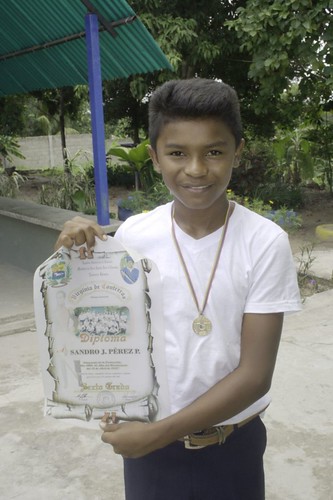

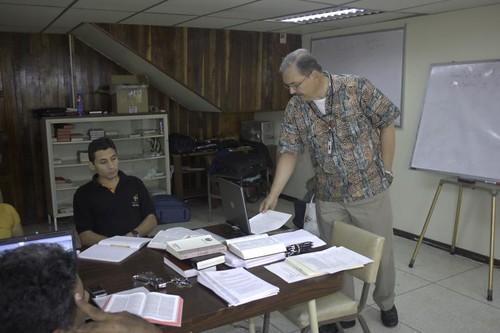
![Reblog this post [with Zemanta]](http://img.zemanta.com/reblog_e.png?x-id=806cdf2f-80cc-4106-b140-7305e17b6fe0)


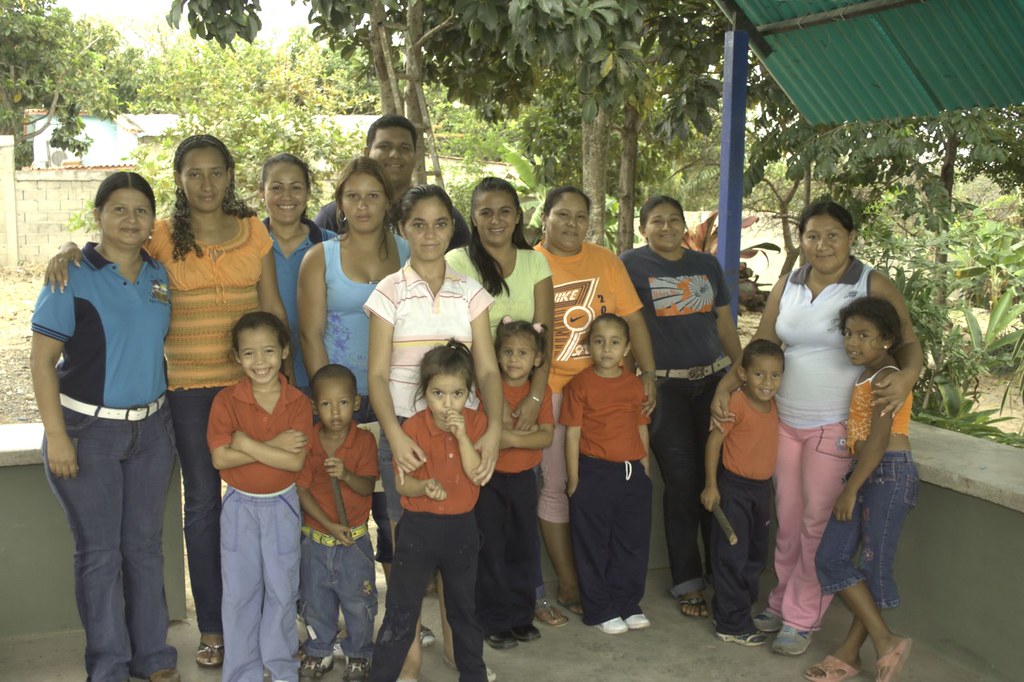
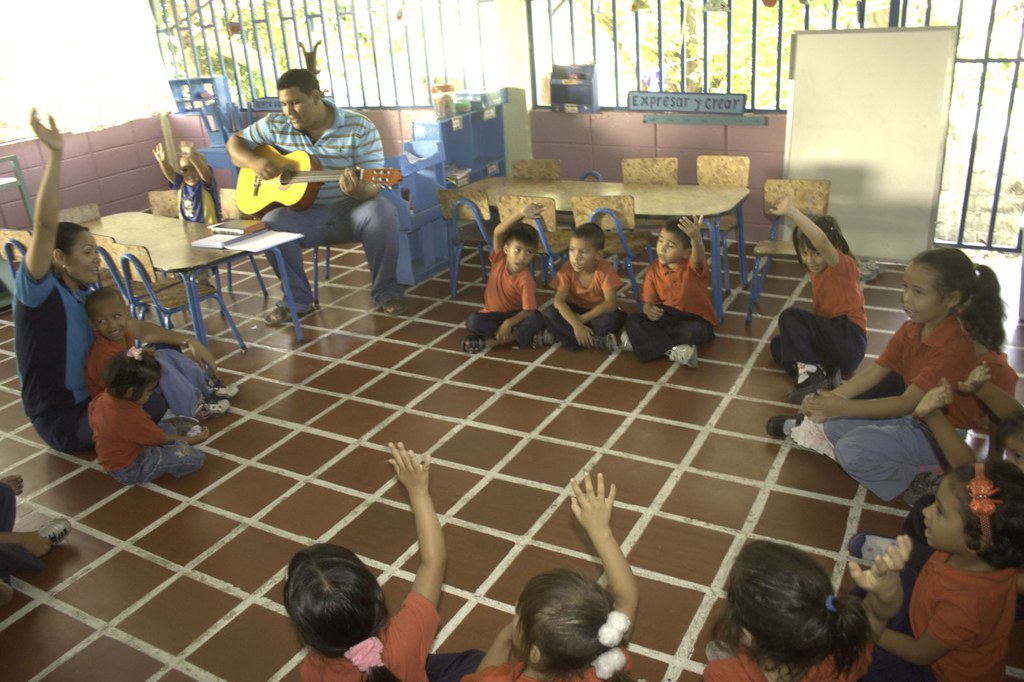
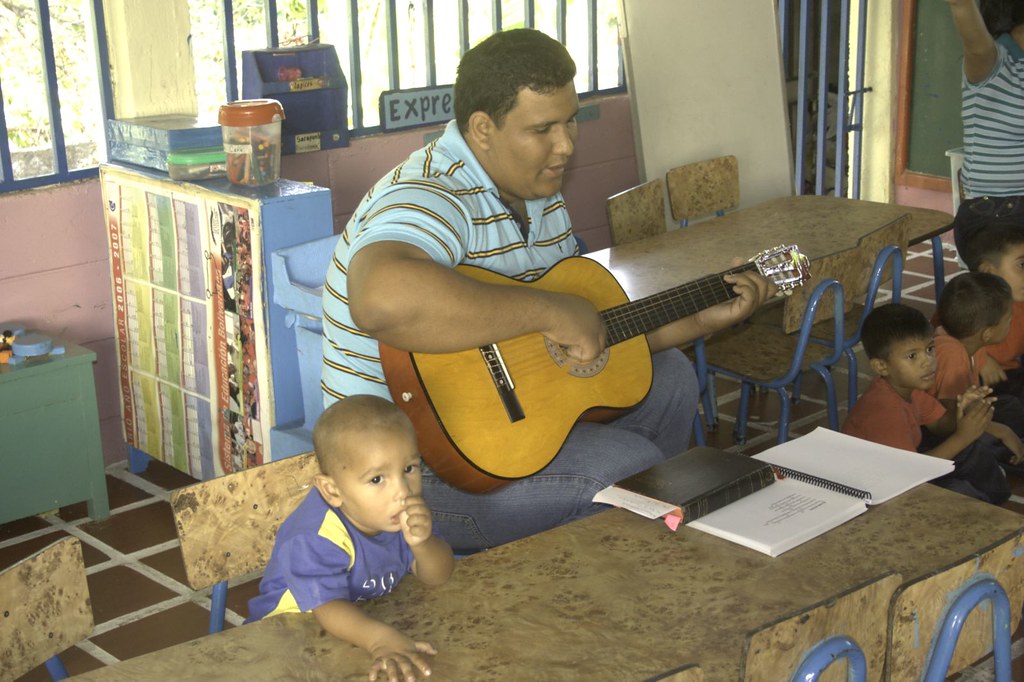
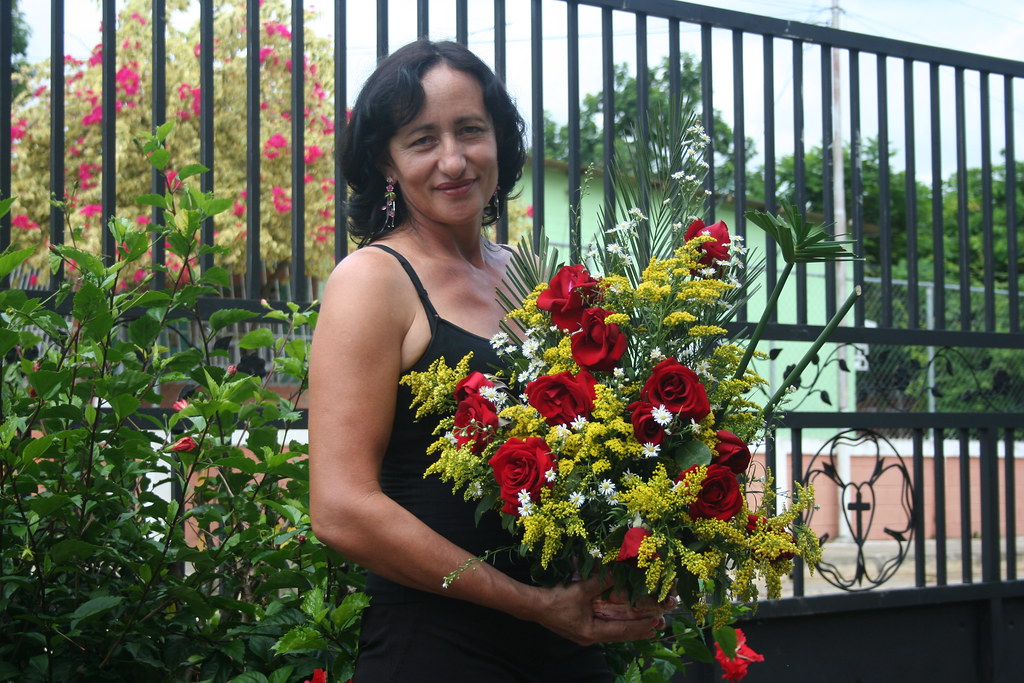
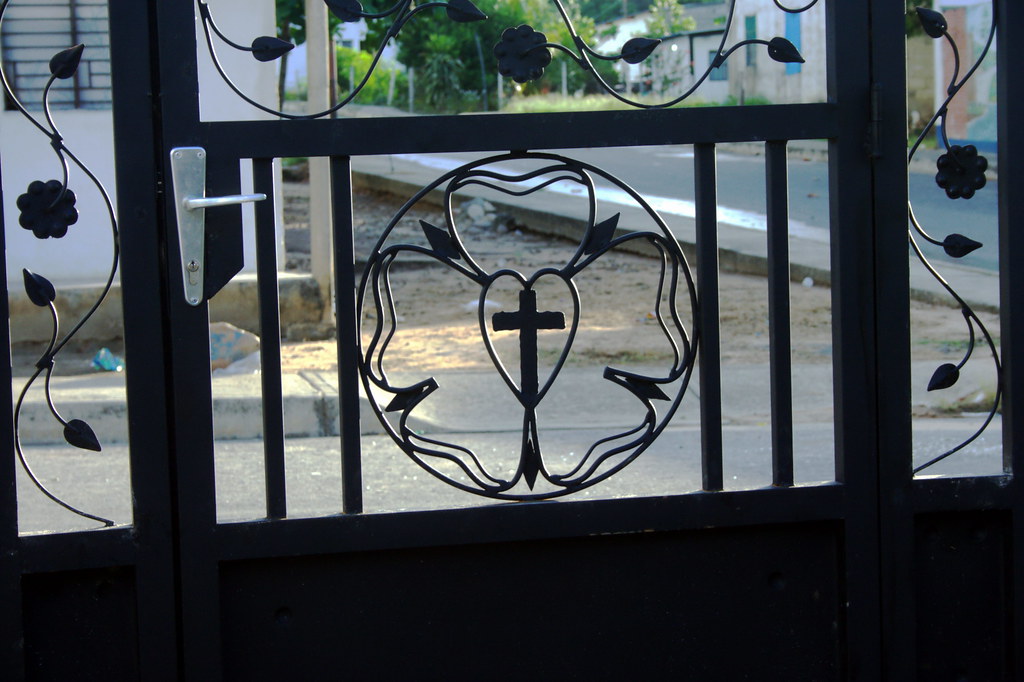
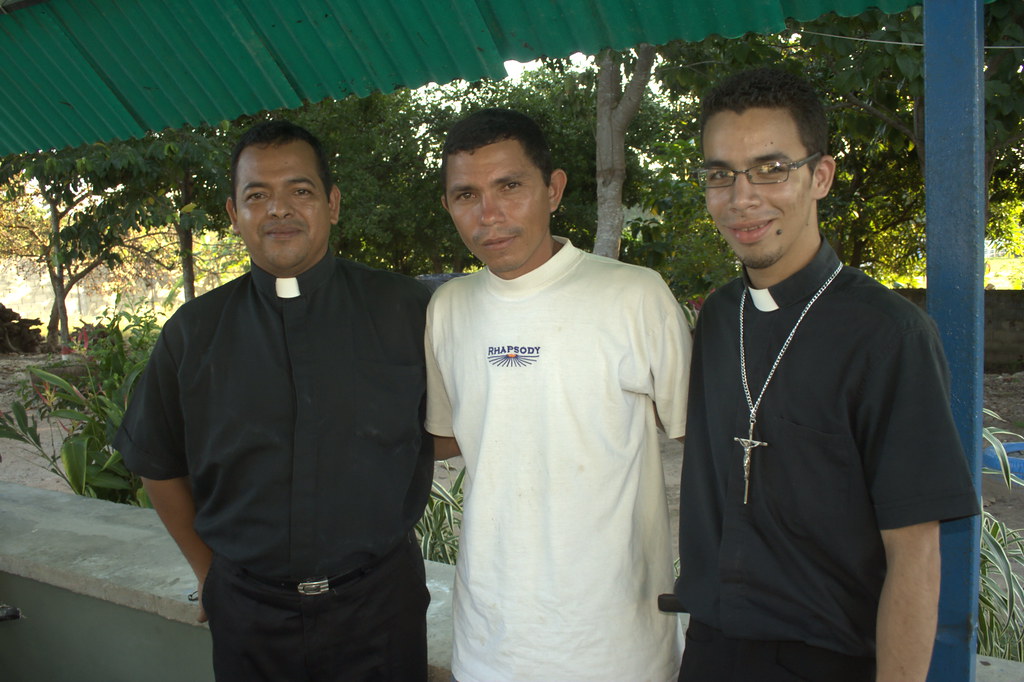 On Sunday, October 19, Pastor Adrian Ventura, president of the Lutheran Church of Venezuela, visited Barinas. That morning at Corpus Christi Lutheran Church, Eduardo played the guitar, I led the opening Service of the Word, and Pastor Adrian preached and administered the sacrament of Holy Communion. His sermon was excellent, but perhaps the most notable aspect of the service was that as it was underway, Venezuela experienced its
On Sunday, October 19, Pastor Adrian Ventura, president of the Lutheran Church of Venezuela, visited Barinas. That morning at Corpus Christi Lutheran Church, Eduardo played the guitar, I led the opening Service of the Word, and Pastor Adrian preached and administered the sacrament of Holy Communion. His sermon was excellent, but perhaps the most notable aspect of the service was that as it was underway, Venezuela experienced its 